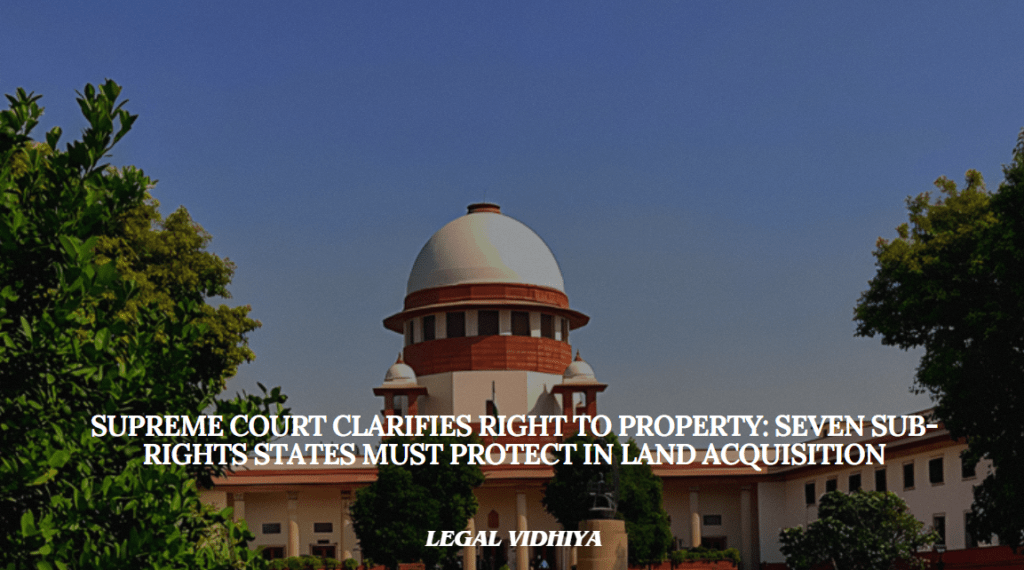
In a landmark judgment, the Supreme Court of India has delineated seven sub-rights that the state must protect during land acquisition, reinforcing the constitutional right to property. The case, Kolkata Municipal Corporation & Anr. v. Bimal Kumar Shah & Ors., has set a new precedent in property rights jurisprudence.
The bench, comprising Justices PS Narasimha and Aravind kumar emphasized that the right to property, though not a fundamental right, remains a constitutional right under Article 300A. The judgment underscores that any encroachment on this right must be carefully scrutinized and justified.
The Supreme Court identified the following seven sub-rights as integral to the right to property during land acquisition:
1. Right to Fair Compensation: Ensuring that landowners receive just and fair compensation for their acquired property.
2. Right to Timely Compensation:Mandating prompt payment to avoid prolonged financial hardship for landowners.
3. Right to Information:Guaranteeing transparency in the acquisition process, including clear communication about the purpose and extent of acquisition.
4. Right to Be Heard: Allowing landowners to voice their objections and concerns before final decisions are made.
5. Right to Rehabilitation and Resettlement: Providing adequate support and resettlement options for those displaced by acquisition.
6. Right to Fair Valuation: Ensuring accurate and fair valuation of the acquired property, reflecting its true market value.
7.Right to Legal Recourse: Granting landowners the ability to challenge acquisition decisions through judicial review.
This judgment is expected to have far-reaching implications for future land acquisition processes, ensuring greater protection and fairness for landowners. Legal experts have hailed the ruling as a significant step towards more transparent and equitable land acquisition practices in India..
Case Title: KOLKATA MUNICIPAL CORPORATION & ANR. V. BIMAL KUMAR SHAH & ORS.
Name – Supriya, course – B.A.LL.B, S.S khanna Girls’ Degree College, UoA, Intern under legal Vidhiya.
Disclaimer: The materials provided herein are intended solely for informational purposes. Accessing or using the site or the materials does not establish an attorney-client relationship. The information presented on this site is not to be construed as legal or professional advice, and it should not be relied upon for such purposes or used as a substitute for advice from a licensed attorney in your state. Additionally, the viewpoint presented by the author is of a personal nature




0 Comments